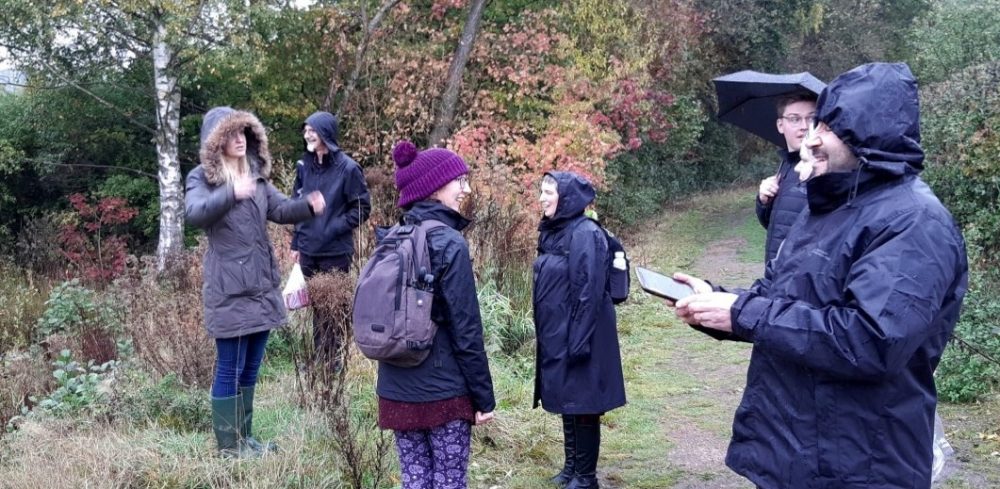In this special series of blog posts, I talk to colleagues about their impactful public engagement activities. This is the first in the series, and I was delighted to meet with Associate Professor Agata Lulkowska to talk about the many ways that she brings together people inside and outside of academia who are interested in creative practice research.
- What is ‘Rebellious Research’, how did it come about, and what is your role in it?
I am responsible for the Practice Network of the British Association of Film and Television Studies. Through this, I lead and contribute to multiple networks – some formal, some informal – all focused on creative practice research. I develop activities to bring together people who are interested in creative practice research, including university researchers and people working in different settings. One of these activities is the Rebellious Research Seminar Series, which I began over three years ago.
- What are the main challenges that your network addresses?
Initially, I developed Rebellious Research in response to the lack of information and guidance for creative practice researchers. I had struggled with this as a PhD researcher, especially because my research covered such a broad range of topics, including film, visual anthropology, Latin American studies and indigenous studies. So later, when I began supervising other researchers, I approached people with expertise in a wide variety of areas to share experiences at the Rebellious Research events. Importantly, connections are between academics, artists, creative practitioners, and people working on the edges of academia. We go beyond disciplines and professional backgrounds, to explore common interests in creative practices.
- Can you give some examples of how Rebellious Research has made a difference?
Rebellious Research brings creative practice and research onto one platform. The sessions are held online, so people join from all over the world. And they are recorded, so people can listen at a time that suits them, and we’ve built up quite an archive! Some of the recordings have had up to 900 views, which is above and beyond what I anticipated. Rebellious Research is seen as a community. And the beauty of creative practice is that it has so many different layers and meanings – whether human, social or political – and therefore can be a bridge between people and places. I often receive emails from people who watch the seminars saying that for the first time they feel part of a community that they didn’t know existed. I also have feedback from artists who have discussed their work at Rebellious Research events that they have come away with new insights about the potential impact of their work, beyond aesthetics and towards wider societal impact.
- What do you think the future holds for Rebellious Research and what does success look like?
I plan to continue to grow the Rebellious Research network through the mailing list and Linkedin, as well as through publications, invited talks and a podcast series. I’m also applying for funding to sustain and further build on the work. I’d like to develop a Global Advisory Board and run creative practice research workshops in different locations. I also want to connect more widely with grassroots communities, emphasising that creative practice research is open to everyone!
- How do you feel this contributes to Staffordshire Universities Connected Communities vision and strategy?
A big part of why I do what I do is that I want to challenge the idea that creative practice research only happens in an academic context. I aim to break down walls between artists, academics, and communities by creating a vibrant hub to bring people together.
- Further Information
https://www.agatalulkowska.com/seminar-series

